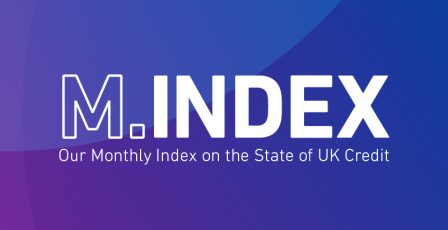Getting ready for regulation
The cost of living continues to pre-occupy consumers. Despite inflation easing, concerns remain about the sluggish performance of the UK economy, increase in energy costs, and up-tick in unemployment.
UK consumers have been resilient, using their savings or access to credit to manage their finances. However, the demands of Christmas may have pushed some to the limit of affordable debt. Those most at risk are the younger, middle aged and lower, middle affluent groups who are often the most credit active and where the full impact of the increase in mortgage interest rates is yet to play out.
12m (24%)[1] of UK adults are estimated to have low financial resilience – a limited ability to withstand financial shock or to recover from financial difficulty. A proportion of these adults will inevitably include the 1.6m* that the Gambling Commission estimates to be at risk from problem gambling.
Concern from the government and gambling regulator about the continued popularity of online gaming – up 27%[2] year-on-year- and its impact on the financial health of UK consumers has prompted a review of the measures being used by gaming firms to protect players from harm.
The results of the Gambling Commission’s consultation are due shortly, but gambling firms are faced with the prospect of reviewing how they assess player’s financial vulnerability to meet their licensing obligations and safeguard consumers.
Credit bureau and current account turnover (CATO) data – a consumer’s consumption of credit, payment performance, credit indebtedness and current account behaviour can provide meaningful indicators of financial risk whereas other sources of data such as, digital payslips and Open Banking can (despite being just as relevant) be considered as being more intrusive.
The regulatory focus now is on understanding how credit bureau, along with sources of financial data can be used to help those who gamble online. Remembering, of course that digital application of credit data is not relevant for in-person betting, in shops or at racecourse, but is best suited to assessing the impact of online gaming.
Working with some of the UK’s biggest gambling firms we have collaborated to help qualify the role of credit data and other sources of banking information such as Open Banking to better understand a player’s financial vulnerability.
Here are four key takeaways to consider when looking at vulnerability within gambling.
1. Vulnerability should not be confused with affordability
Monitoring how players consume and repay credit is crucial for gauging their financial wellbeing. Credit bureau data, including credit agreements, spend patterns, repayment speed, defaults, and unresolved debt, provides timely indicators of financial stress. Affordability is measured through alternative information such as income and expenditure. While these data sources can provide useful indicators they cannot be used in isolation as they don’t offer a complete view of an individual’s financial circumstances. Credit bureau data offers the most rounded view when assessing vulnerability and while income and expenditure can very much be considered as being complimentary it should not be the only source.
2. No one should be treated as an average
Much of the data currently being used by gaming firms to identify player vulnerability is based on postcode averages of their income or modelled estimates of their expenditure based on their demographics. Assessing vulnerability using modelled averages is inaccurate and it fails to recognise the individual’s financial wellbeing. Credit information, some of which is publicly available, and some of which is now compliant to share with gaming firms provides more personalised insight on an individual’s finances. It’s updated monthly so it accurately reflects an individual’s capacity to play and can be used as a tool to monitor changes in their financial wellbeing providing an early indicator of emerging stress.
3. Taking time to understand
We have a strong breadth and depth of data which can help firms understand their player’s financial risk. The challenge is identifying which of this data is best at identifying the risk, and what proportion of customers are affected. Taking time then to get to grips with the value of bureau data is important. Limiting the amount of data used to accurately inform financial risk, summarising this into a score or vulnerability flag could provide a more measured approach to informing the risk, balancing player insight with their privacy.
Some gaming firms are already looking to access summarised credit bureau data – scores or flags – to simplify vulnerability assessments and manage the cost of accessing credit bureau data. Others are looking at orchestrating the use of an individual’s credit risk, income and expenditure to create their own measures of vulnerability in association with the spending thresholds being proposed by the Gambling Commission as benchmarks for identifying at risk customers.
4. Keep it fast, flexible and friction free
Gaming firms can easily benefit from the well-established infrastructure used by lenders every day to inform millions of credit checks for consumers. Credit data is delivered in milliseconds. It’s trusted, non-intrusive, and unlike Open Banking it does not require explicit consumer consent to source. Available via API for integration into existing IT systems, it can be processed in a gaming firm’s ‘back-office’ to inform decisions and devise personalised remediation for players. It’s configurable, capable of being tailored to suit a gaming firm’s individual risk requirements, whilst being non-intrusive to the players.
How we can help
To help you understand more about player’s financial risk and the impact of impending reform, we’ve put together a comprehensive Gaming Guide. It includes information and guidance on:
- Working with a Single Customer View to build an accurate picture of your customers and use data sources that help you reduce the risk of financial damage.
- Ensuring you’re prepared for market changes, by learning from other industry benchmarks and making sure you adhere to all regulations.
- Discovering what an Enhanced Player Protection Check is, as well as the main reasons it may be needed.
Get in touch
Speak to one of our specialist Gaming Consultants and receive a personalised financial risk analysis report for your business.
Get in touch[1] Financial Lives 2022 survey, The Financial Conduct Authority
[2] Gambling behaviour in 2022: Findings from the quarterly telephone survey, Gambling Commission










